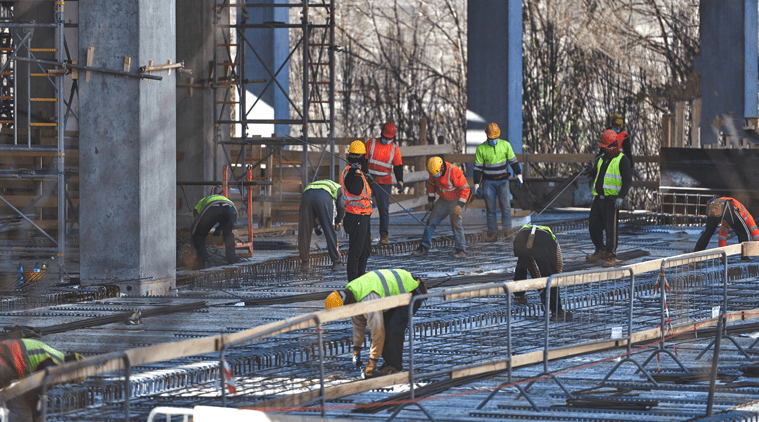Last month we discussed “What to Look for in a Contractor When Planning a New Project.” This month, we will explore that in a little more depth, emphasizing the importance of trust and how trust between all parties is essential throughout a successful project.
“Trust” is an integral component of the construction industry, not just the “buzzword” it has become in the business world. A construction project (small or mega-large) represents a considerable investment in time and money for any client project type.

Every client makes an investment, signs a contract with a General Contractor (GC), and then needs to trust that the Contractor they selected will provide the expected outcome.
Construction is an industry where numerous companies (people) are thrust together in one location daily. They are there to meet a common goal (for someone else) and together to meet it efficiently, on time, and within budget. They are asked to do this quite often without ever having met each other, much less having worked together. A daunting ask. Would you have a deeper level of trust in your General Contractor going into the project, knowing that they have a strong relationship with the subcontractors because they have a proven track record of working together? There is an immense difference between a contractual relationship and a personal relationship.
A contractual relationship by itself does not require trust. Terms are defined, scopes of work are explained, and procedures to handle every situation are spelled out. As long as we both sign the document (and it is a well-written contract), trust doesn’t enter the equation. On the other hand, a personal relationship is based on trust and, in conjunction with a contract, becomes a formula for success.
A relationship based on trust doesn’t need a contract except in rare circumstances. The contract becomes a “fallback” document if something goes wrong and the two parties cannot agree on a solution.
Let’s explore some qualities that foster trust and the impact various levels of that trust have on a project’s outcome. When subcontractors know what to expect from a General Contractor, and the General Contractor knows what to expect from subcontractors, there is a mutual benefit to the client and all personnel involved. The project will be completed quicker, and each day brings a higher level of productivity and levels of collaboration. The more communication and collaboration between subcontractors, the fewer mistakes are made. Less work needs to be re-done ($) because one subcontractor wasn’t thinking about where the other subcontractor’s work overlaps his. For example, if the electrician is not communicating with the cabinet installer, we may wind up with a receptacle covered by a backsplash.
The “lowest bidder” comes into a job with a lower level of trust before they even start a project, as the GC is wondering why the bid was so low. The Superintendent is at a distinct disadvantage because they don’t know who they are working with, their skill level, communication skills, or how they will interact with the other subcontractors.
The subcontractor has little trust in this Superintendent because in the last project he worked on, the Superintendent lied to him, belittled him, etc., so, in his mind, all Superintendents are the same. Building a relationship takes time.
Consistency is a quality of trust that seems academic but unfortunately not easily found. If a person always does what they say they are going to do, trust increases. Trust builds teamwork.
Familiarity is a key to building trust and teamwork. When subcontractors work together on multiple projects, relationships are formed and strengthened as the goals become equal. Helping one another is easy when there is trust and a team atmosphere. Multiple perspectives amongst trusting peers bring faster solutions and require less money and less time.
One of the difficulties found in Design-Bid-Build projects is that the collaboration between GC, Subcontractors, Clients, and designers rarely exists and doesn’t have an opportunity to grow, thereby reducing the level of trust (i.e., between subcontractors and designers). If there were direct contact, such as in Integrated Project Delivery, the trust between the Architect and the subcontractors is being formed from the start, and the collaboration flows through the entire project, not just when there is a problem.
When there is a centralized data system, and everyone has access to the same information simultaneously, there is less room for finger-pointing. Every member of the team has to take equal responsibility.
The chances of conflicting sources of information are reduced, and members of the team trust that everyone has the most recent data.





